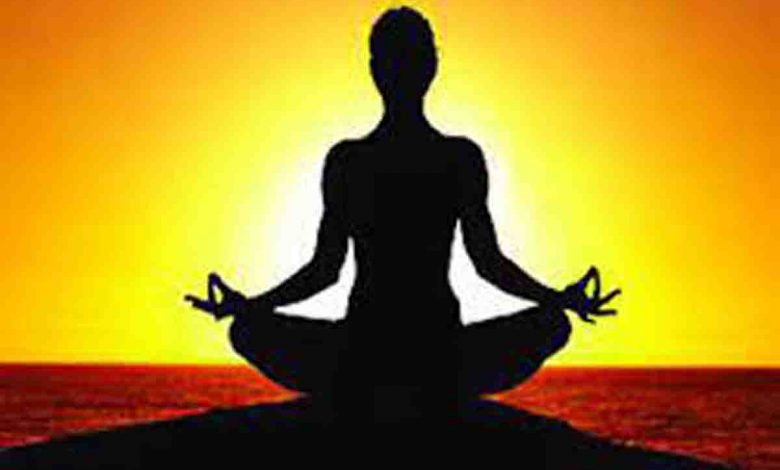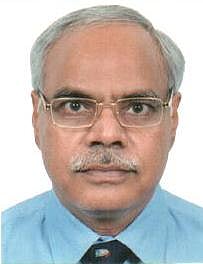Yoga the great unifier

Tuesday, 21 June 2022 | Dr BKS Sanjay
GUEST COLUMN——————————
 Dr BKS Sanjay
Dr BKS Sanjay
The International Day of Yoga has been celebrated annually on June 21 since 2015. The theme for this year- ‘Yoga for Humanity’ perfectly portrays how during the peak of Covid-19 pandemic, Yoga served humanity in reducing suffering. The theme also aims at highlighting how even in the post-Covid geopolitical scenario Yoga can play a major role in bringing people together with compassion, kindness, build resilience among people and foster a sense of unity.
Yoga is a group of physical, mental and spiritual practices or discipline which originated in ancient India and aim to control the mind. There is a wide variety of schools of Yoga practices and goals in Hinduism, Buddhism and Jainism. Traditional and modern Yoga is practiced worldwide. Yoga is first mentioned in the Rig Veda and is referred to in a number of Upanishads.
The term Yoga in the western world often denotes a modern form of Hatha Yoga and a posture-based physical fitness, stress-relief and relaxation technique consisting largely of Asanas. This differs from the traditional Yoga which focuses on meditation and release from worldly attachments.The ultimate goals of Yoga are stilling the mind and gaining insight, resting in detached awareness and Moksha from Samsara and Dukkha.
The word Yoga is derived from the Sanskrit root ‘Yuj’ meaning “to join” or ‘to yoke’ or ‘to unite’. As per Yogic scriptures the practice of Yoga leads to the union of the individual consciousness with that of the universal consciousness, indicating a perfect harmony between the mind and body, man and nature.Yoga has five principal meanings- a disciplined method for attaining a goal, techniques of controlling the body and mind, a name of a school or system of philosophy, “Hatha”, “Mantra” and “Laya”, tradition specialising in particular Yoga techniques.
Health, as defined by the World Health Organization (WHO), is “a state of complete physical, mental and social well-being and not merely the absence of disease or infirmity.” Yoga is a physical, mental and spiritual practice which can be done to maintain good health.
Everybody knows that eating a balanced diet, exercising and getting plenty of rest are key to maintaining good health. Physical and mental well-being start with access to fresh air, nutritious food and the security of a stable home. People also need healthy relationships and a life free from violence, injury and toxic stress. Access to routine and critical health care is also an important factor to maintaining health and well-being.
The philosophy of Yoga tells us that the root cause of all our sorrows and suffering is loss of contact with our true self. This self is called by various names, such as Atman, Purusha and God. Our loss of contact with the Self is due to our ignorance of the Self as the only reality. Ignorance creates spiritual blindness and subjects us to a world of delusion and desire. This world becomes governed by the seemingly unending rounds of birth and death, pain and pleasure, and happiness and suffering.
Stress is a new health problem. Stress is a constant factor in today’s fast paced life that can jeopardise our health if left unchecked. It reduces the body immunity. Stress is a common conditional response to a physical threat or psychological distress that generates a host of chemical and hormonal reactions in the body. As a part of the adaptive response to stress various body systems such as the autonomic, cardiovascular, gastrointestinal, and immune systems may be affected.
Around 70 per cent of the diseases are stress related. Breathing exercise and meditation have proved to reduce this stress, which has been proved by many bio feedback studies. Ample researches have shown that just 20 minutes of meditation a day increases endorphins, decreases cortisol levels and fosters positive states of mind to promote better health.
Yoga helps lower stress hormones that compromise the immune system, while also conditioning the lungs and respiratory tract, stimulating the lymphatic system to oust toxins from the body and bringing oxygenated blood to the various organs to ensure their optimal function.
Yoga is known to promote good physical and mental health. Practicing Yoga can help one to calm the body and mind that would in turn, help us with our overall day-to-day performance in every field. Yoga helps in reducing any sort of physical pain, improves all physiological functions, reduce anxiety and any symptoms of depression, improve strength, balance and flexibility of muscles, better sleep and help to relief the symptoms of menopause in women.
There are different kinds of Yoga and it is very vital that we identify the right Yoga style for us. Yoga is a good routine activity for those who have high cholesterol, high blood pressure, diabetes. Just as we consider it important to have nutritious food and stay disease free to keep our body healthy, in the same way Yoga also plays an important role in making our daily life healthy and fit.
The habit of Yoga, breathing and meditation should be the part of one’s day to day activity to maintain his physical, mental, social, psychological and spiritual health. Yoga needs only a little bit of time and is to be done at regular intervals to improve the general health of an individual. Yoga practice of half an hour to one hour on a daily basis is enough to maintain good health.
I believe that we should include Yoga in our daily routine. Yoga needs only little time and is to be done at regular intervals to improve the general health of an individual. It is preferable to teach the Yoga in school so that the habit of Yoga can be developed childhood. As it is said, it is easy to make any habit in childhood but difficult to leave that habit in adulthood. Therefore the goal should be to target the children to give them good habits.
(A Padma Shri recipient, the author is an orthopaedic surgeon based in Dehradun. Views expressed are personal)






